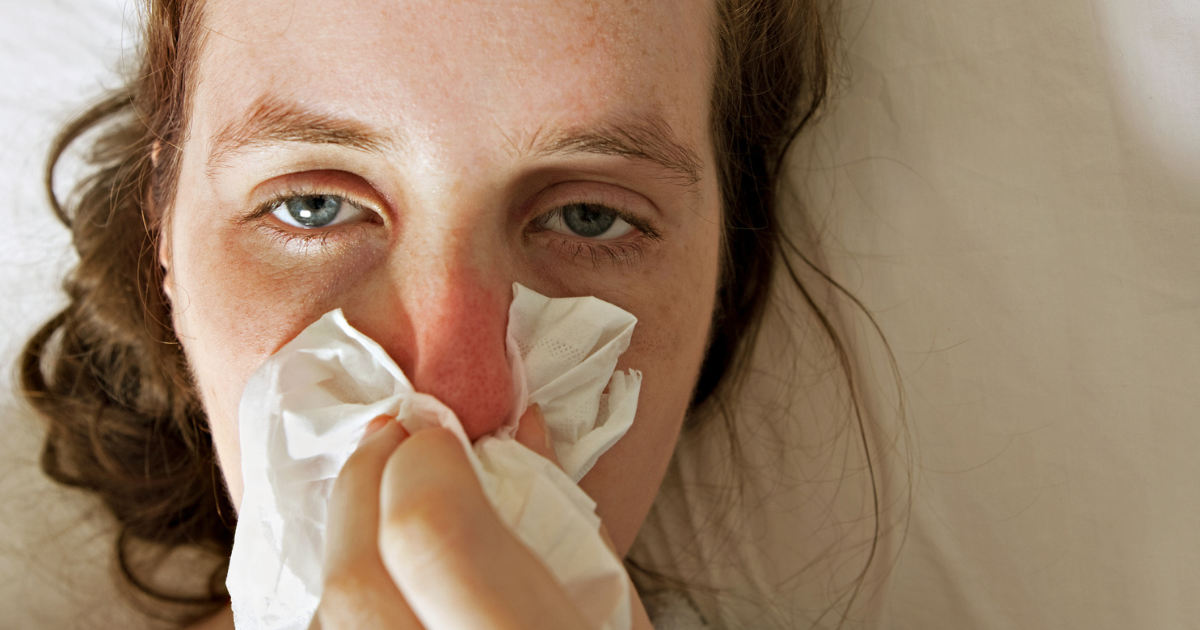How to Prevent “Winter Nose”

“The colder, dryer air can wreak havoc on the lining of your nose causing a feeling of dryness. This feeling is then sensed by nerves in the nose which send signals to the brain to increase blood flow,” says Christie Barnes, MD, an ear, nose and throat (ENT) and sinus specialist with Nebraska Medicine. “The increased blood flow is designed to increase mucus production, however, it can often make your nose more congested or stuffy.”
The dryness can also lead to cracks in the thin lining of the nose, exposing the fragile superficial vessels underneath and leading to nosebleeds. “The winter is the most common time of the year for people to suffer from nosebleeds,” notes Dr. Barnes “when it comes to winter nose bleeds, an ounce of prevention is worth a pound of cure.”
Steps to lessen the effects of winter nose
Correct usage of nasal sprays: Nasal sprays for allergies can worsen the problem, when not sprayed correctly in the nose. When using, aim the tip in the direction of the far corner of your eye to avoid spraying the medication on the septum, the middle part of your nose which divides the nose into right and left sides.
Use a humidifier: Fireplaces and gas heaters can be drying during the winter, using a humidifier can help replace lost moisture in the air. A whole home humidifier can be utilized throughout the house or, if that is cost prohibitive, a small, portable unit at your bedside overnight will help.
Lubricate the lining: Moister and lubrication are most important element of treating a winter nose and preventing nosebleeds. “My favorite nasal lubricant is coconut oil,” notes Dr. Barnes. “As the only oil that is solid at room temperature then melts at body temperature, this is the perfect lubricant for protecting your nose from the drying effects of winter. I recommend using it once or twice a day, but particularly before you go to bed at night.”
Over the counter: Saline nasal sprays and gels can help to moisturize your throughout the day, additionally, some people have good results with Vaseline.
A winter nose typically gets better with the above measures, however, if you are not seeing improvement or your symptoms get worse you may want to consider seeing an ENT physician. If you have nose bleeds that are frequent or severe you should see a nose and sinus expert as well.
Winter nose got you down? Make a same or next day appointment with one of our sinus specialists by calling 800-922-0000.




